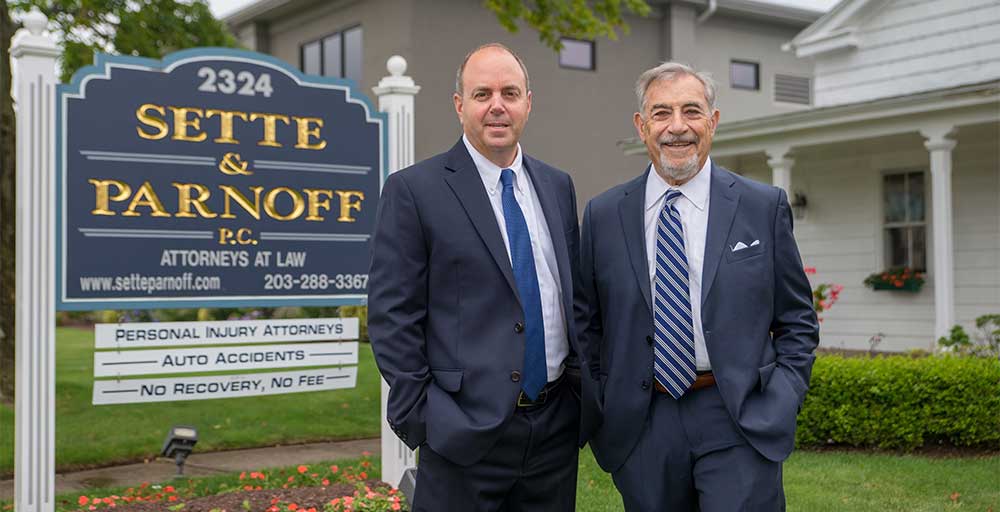Getting into a car crash is a stressful situation, but keeping your cool at the scene of the accident can benefit you in more ways than one. Responding properly can not only help ensure that everyone gets the appropriate medical treatment, but it can also strengthen your insurance claim and/or personal injury case.
Follow our step-by-step guide to handle car accidents like a pro.
Step 1: Safety
As soon as a collision takes place, stop your vehicle and check yourself and your passengers for injuries. If it is unsafe for you or someone in your car to move, stay put and dial 911. Once you confirm everyone is alright, take note of where your vehicle is on the roadway. Put on your hazard lights, set up flares or other warning devices, if it is safe to do so and contact the appropriate authorities. If possible, get out of your vehicle and walk to the side of the road or another area far away from traffic. Sadly, many individuals are seriously injured by oncoming vehicles at the accident scene.
Step 2: Documentation
While you wait in a safe area for police officers to arrive, take pictures of the accident. You should photograph your vehicle, the other drivers’ car or truck, any injuries that occurred, the exact location of the collision, and the surrounding areas. Write down what happened while it is fresh in your memory and before talking to the other driver.
When you do speak with the other driver, avoid apologizing. This can be misconstrued as an admission of fault. Instead, you can ask if the driver and their passengers are alright and exchange insurance and contact information with whoever was behind the wheel.
Make sure you write down:
- The other driver’s full name and contact information
- Their insurance company and policy number
- Their driver’s license and license plate numbers
- The make, model, and color of their vehicle
- The agreed-upon location of the accident
If you don’t feel comfortable chatting with the other driver, or if they are being hostile, you can always wait for the police to arrive. The responding officer should gather the driver’s information for you.
Another activity you can do while you wait is checking for any witnesses and getting their contact numbers. Witnesses may have seen the entire accident from outside and have objective opinions about who caused the collision.
Step 3: Authorities
Be mindful of your words when you talk to first responders. Try not to speculate about the accident, and, if you don’t know the answer to a question, don’t be afraid to say, “I don’t know.” If you are offered medical treatment by firefighters or an EMT, don’t refuse. Some injuries are not apparent until after the adrenaline of the crash has worn off. You can also say, “I don’t know,” if someone asks if you are hurt. Focus on the facts and be sure to ask for a copy of the police report before you finish your conversation. You should also get the name and badge number of all officers you speak to.
Step 4: Insurance
Although you need to notify your insurance company soon after the accident, it is best to speak to an attorney first before giving any verbal, recorded or written statements.
If you feel like the other driver is at fault, you can make a claim against their insurance policy, as well. Our office would be happy to contact their insurance carrier for you and set up a claim.
Step 5: Medical Treatment
If you feel any pain, you need to seek medical attention immediately after an accident. Depending on the type of injury, you may need to obtain treatment from paramedics or other first responders at the accident scene. You may need to be stabilized and taken to the emergency room to avoid further injury. You can also schedule an appointment with your regular physician or see an orthopedist. Many orthopedists have after-hour clinics so you will not have to wait very long to obtain medical treatment. It is important to contact an attorney soon after you see your doctor, as time is of the essence as to obtaining investigation materials, such as accident scene photos, witness statements, 911 calls, vehicle photos, etc. An attorney can also advise you as to which medical insurance is primary. In Connecticut, Medical Payments coverage on your vehicle would be primary (if you purchased it) and must be used prior to your health insurance.
If you are injured in any way, you should seek full compensation for your ailments. Our attorneys at Sette & Parnoff, P.C. can help you with this. We have over 45 years of combined experience handling car accident claims just like yours, and our client-centered approach helps us recognize the unique aspects of your case and achieve your individual goals.
For a free case evaluation in English or Spanish, call us at (203) 490-4155 or request a no-cost consultation online.

